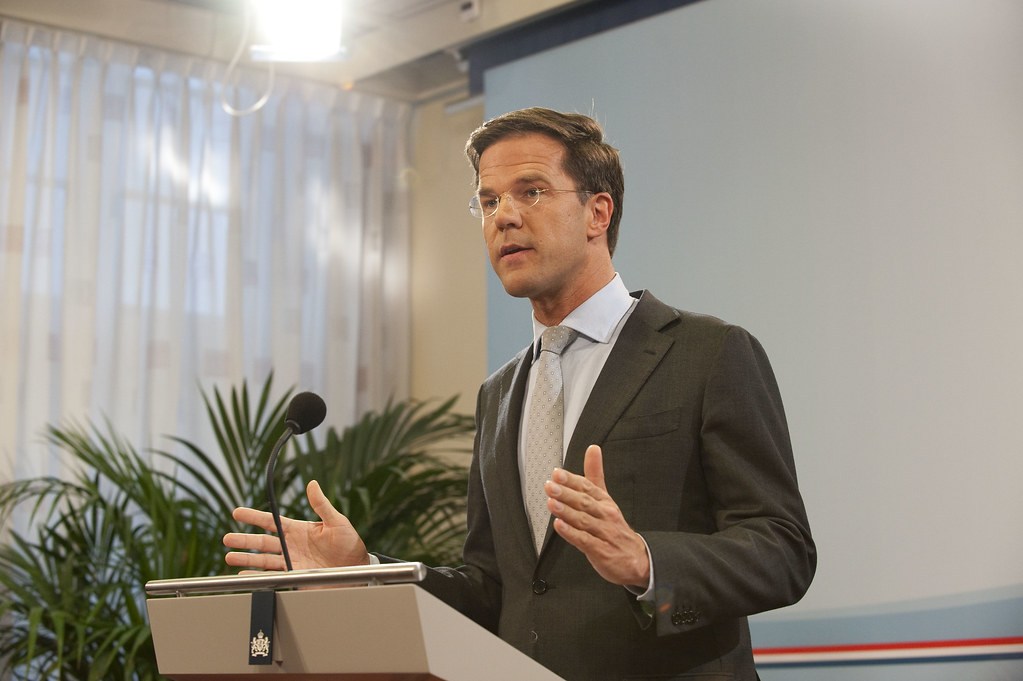The Netherlands will only allow Covid-19 relief funds for Italy, Spain and Portugal if they promise to reform their economies, according to the Dutch Prime Minister.
Mark Rutte said he will be seeking to enforce conditions when discussing the relief fund with fellow state leaders during a special European Council conference in Brussels this weekend, and he believes that his demands may put the brakes on the relief plans.
Rutte recently met with the prime ministers of Spain (Pedro Sánchez), Portugal (António Costa) and Italy (Giuseppe Conte), to discuss the conditions he proposes.
According to Rutte, countries like Spain and Italy, but also France, have promised to initiate economic reforms and make cuts to state costs like pensions before receiving financial help from the EU, but Rutte says that none of these promises have ever been kept. His conditions would guarantee that this time, the promised reforms will be fully implemented.
In order to access the funds, Rutte wants the three countries to present and initiate concrete plans for economic reforms. The content and execution of the reforms will be decided by the member states themselves. He emphasised that their respective state finances and budget plans should also be improved so that there will not be any calls for financial help in future crises.
Related News
- EU budget: Charles Michel's proposal is 'a step in the right direction'
- Germany takes over EU presidency with focus on Europe’s recovery
- Majority of EU citizens want more EU coordination to respond to pandemics
A €750 billion relief fund will be discussed by the 27 EU leaders this Friday and Saturday in Brussels. The plan would boost local economies and help them recover from the lockdown. Rutte has consistently voiced his demands for making the relief funds conditional from the start.
In April, Rutte proposed a second Covid-19 relief programme, which would donate medical equipment to Italy, Spain and Portugal. The plan came after Rutte was criticised for his demands for reform. He started the initiative “coming from the thought that we all need to help one another.”
At the special European Council meeting, state leaders will be discussing ways to distribute the funds. In the proposal, the European Commission sees amounts starting from €500 billion as a subsidy, and states that amounts of €250 billion will be treated as loans.
The Netherlands is supported in its demands for reform by Austria, Sweden and Denmark. These reforms can include local revisions on spending in the fields of education, care for the elderly and the job market. Only once these reforms would come into effect will Spain, Portugal and Italy be able to access the relief funds, Rutte proposes.
“In conversations with other leaders, I notice that some agree with me,” Rutte told Dutch news service NOS. The prime minister stated that he will be maintaining his position this weekend. “I will only agree with the subsidies if the reforms are sure to be passed.”
It is unclear whether Rutte’s points will be taken into consideration during the special European Council meeting.
“I’m not optimistic,” Rutte said. “But on the other hand – no one would like to organise another special European Council meeting, to gather once again and immobilise Brussels.”
“I estimate that the chances of reaching an agreement this weekend are less than 50%. When it comes down to it: content is more important than speed. A weak compromise will not help Europe in moving forward.”
Before the start of the special European Council meeting this morning, the Dutch prime minister spoke with French President Macron. Rutte emphasised that he wishes to solve the situation as soon as possible.
“It’s an unstable world, and we need a stable Europe in the middle of it,” Rutte said.
For Rutte, an interest in the quick recovery of the Dutch economy and the EU’s internal market will also play a role this weekend. “That’s where we earn our money.”
Amée Zoutberg
The Brussels Times

